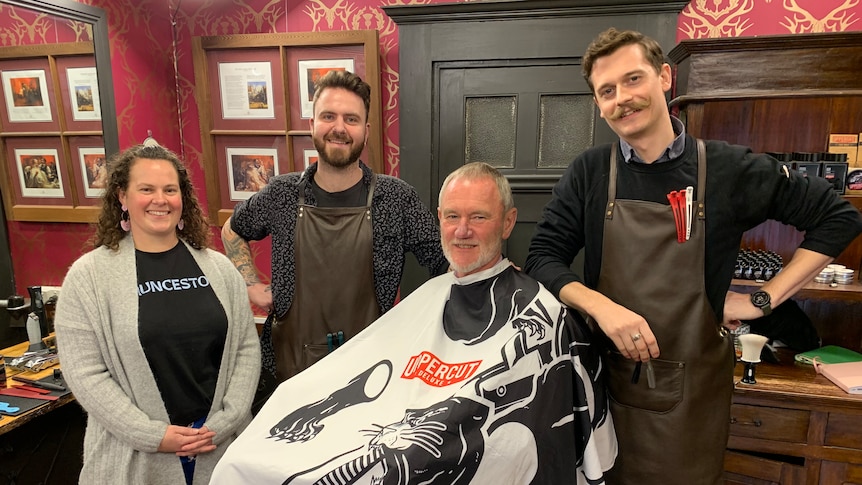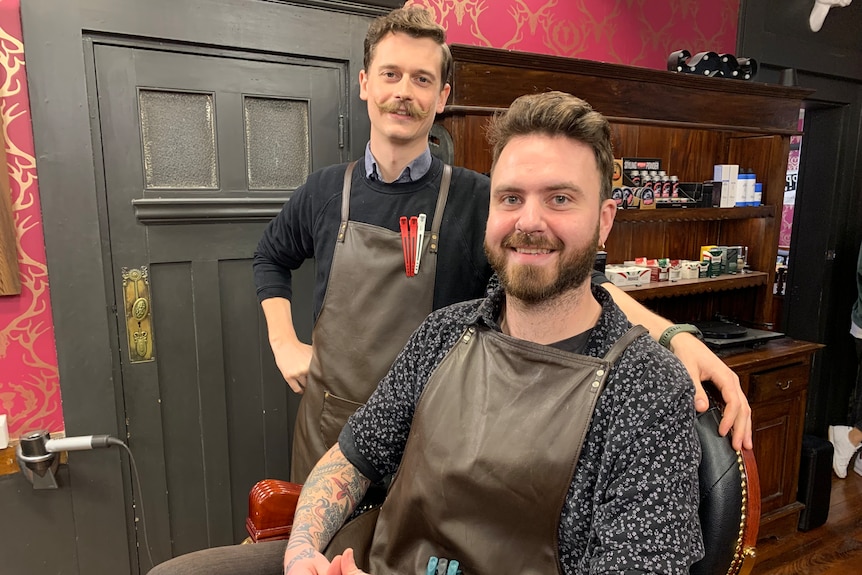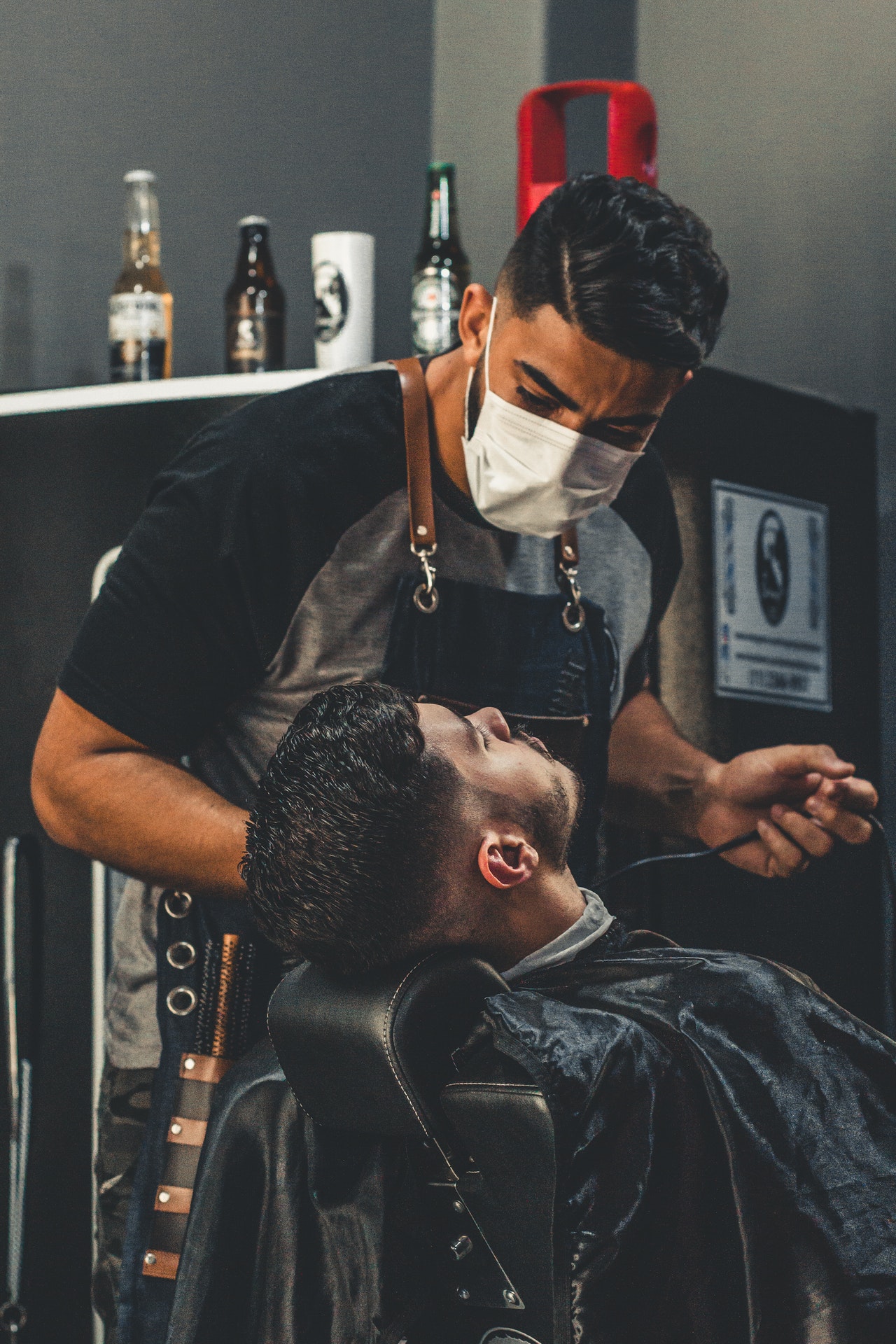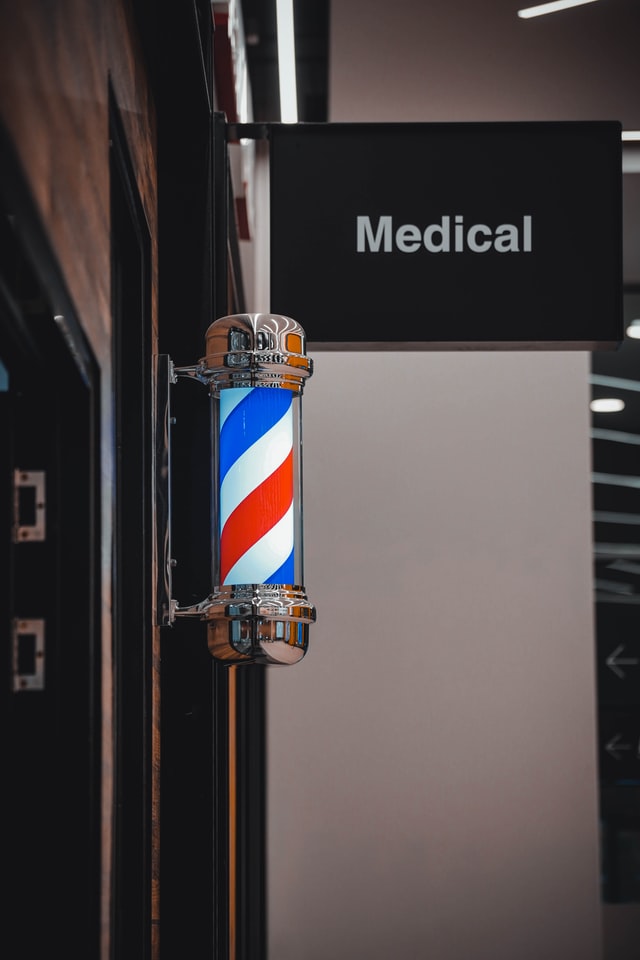
- Better Society -
- 5mins -
- 293 views
Australian barbershops are now cutting mental health stigma with in-chair support
Barbers For Life is a community led network of barbers in Tasmania who have gathered to help support their community and raise awareness around suicide prevention.
Barbers For Life: an initiative to provide easily accessible mental health support
Uniquely positioned to provide support, participating barbers undergo an accredited Mental Health First Aid Program sponsored by the City of Launceston (Tasmania), with an aim to assist the community in finding mental health support and providing a safe space for conversation.
The Barbers For Life initiative is a set of mental health support tools and resources for the community and barbers to access. Launched by the Launceston Suicide Prevention Trial, it is the aspiration that these resources will assist the barbers of Launceston and beyond in their ongoing support to the community as well as growing bonds between barbershops.
After the first City of Launceston supported Mental Health First Aid Program, the Barbers for Life initiative will be community led. City of Launceston has stated its gratitude to participating barbers for their ongoing involvement and continuation of their Mental Health First Aid training in support of wellness in their community. Currently there are eight barbershops on board with the initiative.

Initiative aims to leverage the relationships fostered between barbers and their clients
One Launceston barber, Alex Toscan, told ABC NEWS that five barbers at his business Kingsway Barbershop had taken part in the initiative.
"We see ourselves as a bit on the forefront in the mental health battle," he said. "We see a lot of customers each and every day that are struggling and we just wanted some help and advice as to how to deal with that appropriately. We learnt how to assess people that might be having some issues and then how to appropriately guide them towards some resources and give them some advice that they can use to help them. [We’re] pointing them in the right direction. We’re obviously not counsellors or therapists."
The business also makes available pamphlets for customers, which list available resources.
Barbers are in the right place to provide mental health support, and the program attempts to make the most of the relationships fostered with their clients.
"We build up a bit of a rapport. That gives us an advantage," Mr Toscan said. "We can see if someone is acting a little bit differently or something might have happened in their life that’s affected them and they’re battling. We might have the ability to help them."
Mr Toscan decided to get involved in the program after a number of client suicides.
"Three or four years ago, I think, five of my personal clients committed suicide in one year," he said. "That was something that was pretty hard-hitting and we thought, ‘maybe there’s something that we can do to help’."
Source: ABC.net.au

The initiative is part of the Launceston Suicide Prevention Trial
Launceston Suicide Prevention coordinator Stephanie Armour said the idea came from a barber shop in Hobart. "We realised the barbers are uniquely placed to connect with their customers, and see things and hear a lot of stories," she told ABC NEWS. "They were aware that it was a space that they were very much immersed in but not necessarily having the skills or knowledge to support clients."
She hopes other barbershops in Launceston take up the training course.
Taxis could be next cab off the rank
Launceston mayor Albert van Zetten is urging other sectors to get involved. "It would be great for other areas," he said. "It could be taxi drivers, anywhere where people have a continual contact with people, see them regularly. It’s great to recognise and know what the signs are so that we can all be informed. The more that we can be equipped and prepared is better for everyone."
The project has secured another year of funding through the federal government.
Source: ABC.net.au

Starting a conversation around mental health in 10 different languages
As a part of the Launceston Suicide Prevention Trial, the City of Launceston in partnership with the Migrant Resource Centre Tasmania (MRC Tas) has created ‘Are you ok?’ cards to promote meaningful conversations around mental health.
The cards have been translated into top ten languages spoken in Launceston. In addition to English, they are available in the following languages:


